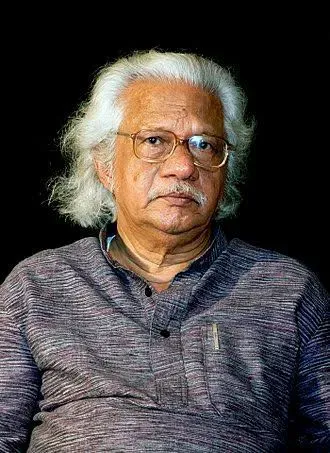Did Adoor Gopalakrishnan Ignite Controversy at Kerala Film Conclave with His Views on Women and SC Filmmakers?

Synopsis
Key Takeaways
- Adoor Gopalakrishnan raised concerns about financial misuse in filmmaking.
- He emphasized the need for structured training for SC filmmakers.
- His comments sparked significant backlash from the film community.
- The debate highlights the ongoing struggle for inclusivity in the film industry.
- Public funds should be allocated carefully to promote quality cinema.
Thiruvananthapuram, Aug 3 (NationPress) Renowned filmmaker Adoor Gopalakrishnan ignited a heated debate at the Kerala government's Film Policy Conclave with remarks considered dismissive towards women and Scheduled Caste (SC) filmmakers benefiting from the Kerala State Film Development Corporation (KSFDC).
During his address, Adoor voiced apprehensions that the Rs 1.5 crore allocated for SC and ST filmmakers might be subject to misuse. “I previously informed the Chief Minister that this sum could foster corruption, yet no remedial measures have been implemented,” he stated. He proposed that instead of granting Rs 1.5 crore to one filmmaker, it would be wiser to distribute Rs 50 lakh to three filmmakers instead.
He emphasized the necessity of structured training prior to financial assistance. “Individuals chosen from the SC community should participate in a minimum of three months of intensive training led by professionals to acquire budgeting and fundamental film production skills,” he remarked.
Adoor made a controversial statement, saying, “Do not allocate funds merely because someone is a woman,” though he acknowledged the rise of numerous talented women filmmakers.
He criticized the existing funding method, arguing that public funds collected through taxation should not be distributed indiscriminately.
“Many individuals assume that just by applying, they are entitled to receive financial support for filmmaking. That is a misguided belief,” he asserted.
Several filmmakers, including Dr. Biju, voiced their discontent with his comments during the session, attempting to respond, but Adoor continued uninterrupted. He also criticized recent protests at the K.R. Narayanan National Institute of Visual Science and Arts, suggesting that the demonstrations aimed to disrupt efforts to restore order at the institution.
According to him, these protests ultimately led to the institution's deterioration. Adoor concluded by reiterating that government funding should not be funneled into commercial projects but should rather promote quality cinema.
His statements have incited backlash from various segments of the film industry and civil society, with many condemning the tone and timing of his comments at a conclave designed to establish an inclusive film policy.










